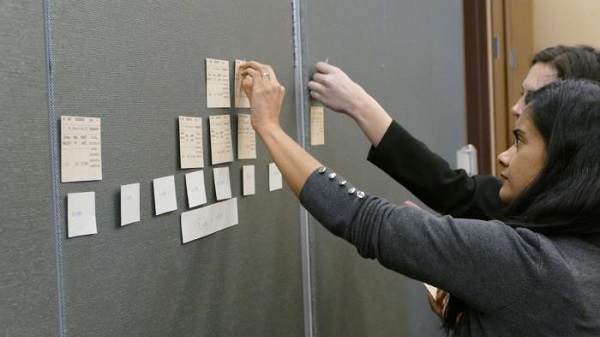At a glance
- Accredited Continuing Medical Education
- Laboratory Training
- Other Training

Accredited Continuing Medical Education
Malaria 101 for the Healthcare Provider
The Malaria 101 for the Healthcare Provider course is a web-based training course designed to teach epidemiologists and healthcare professionals about the epidemiology, prevention, diagnosis, and treatment of malaria. Lesson 1 provides some background on malaria and discusses the epidemiology of malaria. Lesson 2 discusses the prevention of malaria in travelers. Lesson 3 reviews the diagnosis and treatment of malaria. After the lessons, three clinical scenarios will be presented. Content is derived from actual knowledge and practices.
Chagas Disease: Optimizing Care for Pregnant Women and Children
This course is designed to educate clinicians about congenital (mother-to-baby) Chagas disease in the United States. Lesson 1 will cover basic epidemiology of the disease, including life cycle of Trypanosoma cruzi (the causative agent), risk factors for acquiring the disease, the burden of disease, diagnosis of Chagas disease, phases and forms of the disease, and treatment. Lesson 2 will discuss transmission and clinical features of congenital Chagas disease and management of Chagas disease in pregnant and nursing mothers. Lesson 3 will describe diagnosis and management of infants of Chagas-positive mothers and recommendations for the evaluation of siblings and other family members of a positive mother. Lesson 4 will include clinical scenarios/case studies, to present an opportunity to think critically about diagnosis and management of congenital Chagas disease in a heath care setting with provider partners.
Chagas Disease: What U.S. Clinicians Need to Know
This course is designed to educate clinicians about Chagas disease in the United States. Lesson 1 covers basic epidemiology, including a detailed life cycle of Trypanosoma cruzi (the causative agent) and risk factors for acquiring the disease. Lesson 2 discusses phases and manifestations of Chagas disease. Lesson 3 covers laboratory diagnosis, clinical evaluation, and treatment options. This course also includes three patient scenarios so that participants have the opportunity to think critically about diagnosing and treating Chagas.
Emory University Online CE Module for Chagas Disease, Leishmaniasis, and Cysticercosis
This continuing education module, offered through Emory University's Rollins School of Public Health, is intended to train US health providers who care for patients who are Latin American immigrants. This CE module reviews the three most common and serious parasitic diseases among Latin American immigrants: Chagas disease, Cysticercosis, Leishmaniasis and also reviews some cultural competency concepts.
Laboratory Training
The CDC bottle bioassay determines if a particular formulation (combination of the active ingredient in the insecticide and inactive ingredients) is able to kill an insect vector, such as a mosquito, at a specific location at a given time. It can detect resistance to insecticides in mosquitoes and other insects. The technique is simple, rapid, and economical, compared with alternatives. The results can help guide the choice of insecticide used for spraying.
Other Training
Epi InfoTM Vector Surveillance
The Epi InfoTM Vector Surveillance application (app) is a free, mobile app for vector surveillance and data analysis powered by the Epi Info™ suite software. It is available for Android devices in English, Spanish, and French. Download the Android app from the Google Play store.
